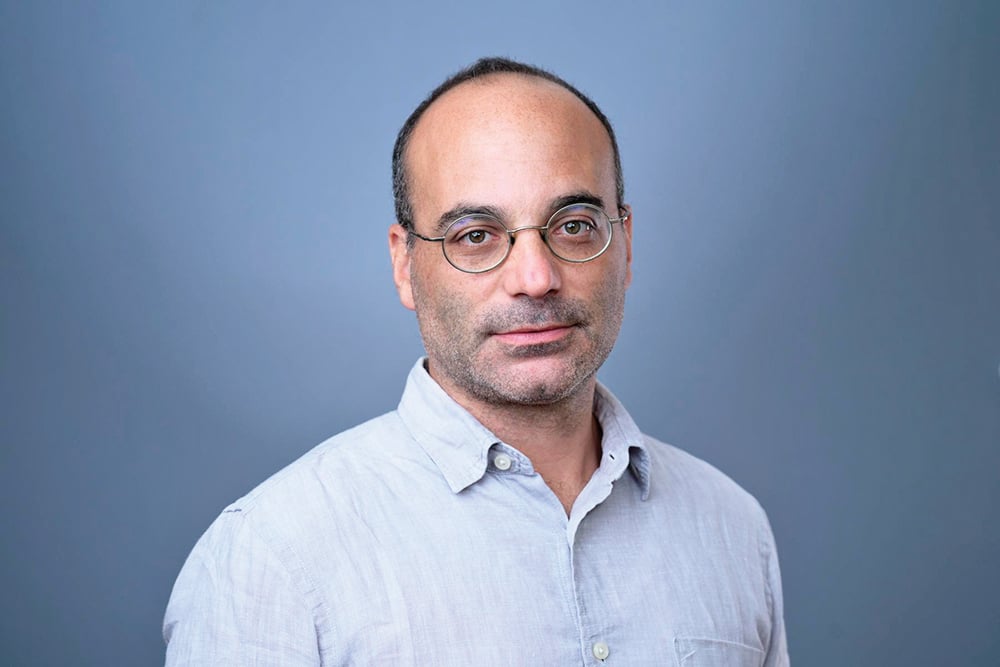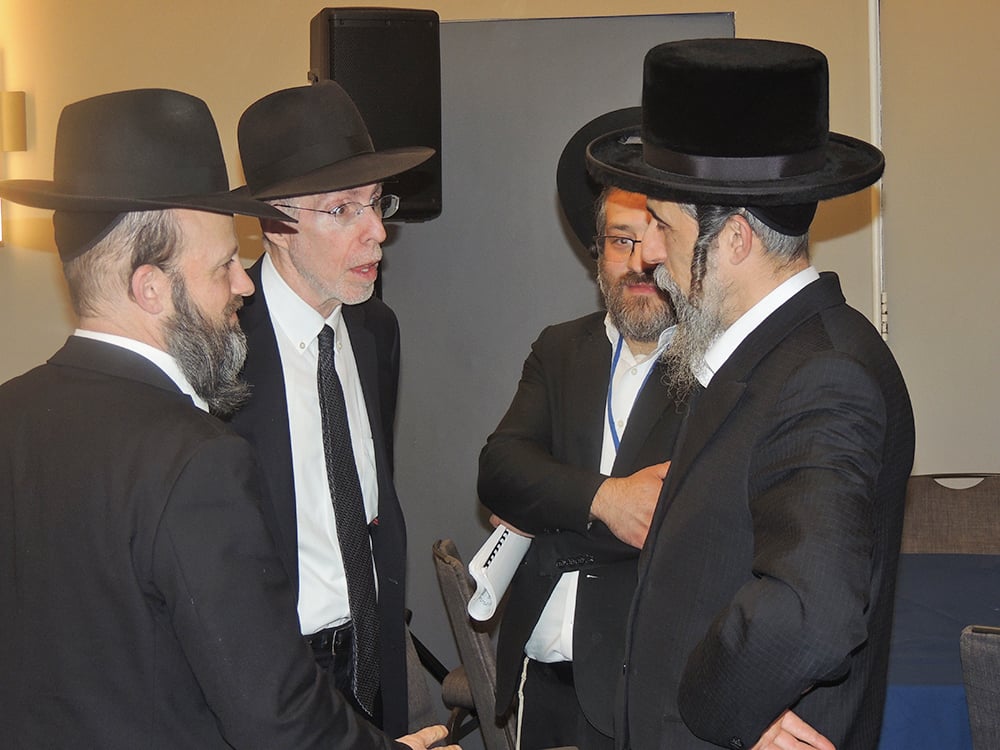Reb Chaim Elazar Spira, the Munkatcher Rebbe, was a tzadik and gaon of unusual piety known after his multi-volume Minchas Elazar. An expression of his uncompromising zealotry was his fierce, outspoken opposition to political Zionism and Agudat Yisrael.
Rav Yechiel Yaakov Weinberg, zt’l, was one of the great roshei yeshivah and Jewish intellectuals of our century, heading the Hildesheimer Rabbinic Seminary in Berlin. An influential posek, he authored the collection of classic responsa entitled Seridei Eish. He was also well-versed in secular academic knowledge and had earned a PhD, uniting his great yiras Shamayim, fear of Heaven, with cultural and intellectual openness.
These two pillars of Eastern European Jewry maintained a close and “unlikely” friendship. At the wedding of the daughter of the Munkacher Rebbe, at which many of the gedolim and great rabbanim of the generation were present, the Rebbe stood up and proclaimed that Rav Weinberg would be honored with leading the Bircas haMazon.
Surprised murmurs rippled through the crowd. Could it really be that the leader of the most extreme kanayim is, at his daughter’s wedding, being mechabeid the modern rabbiner, with his trimmed beard and a doctoral degree?
Sensing the surprise of his guests, Rebbe was taken aback. “Everyone here who has joined us as an honored guest at our simcha is like family! For the kavod of leading us in bentching, I would indeed like to honor Rav Weinberg, who is not only mishpacha, but also my dear friend…”
~
וַיַּחֲנוּ בַּמִּדְבָּר וַיִּחַן־שָׁם יִשְׂרָאֵל נֶגֶד הָהָר׃
“…They encamped (plural) in the wilderness;
Israel encamped (singular) there, in front of the mountain.”
(Shemos, 19:2)
כְּאִישׁ אֶחָד בְּלֵב אֶחָד…
“Like one person, with one heart.”
(Rashi on the pasuk)
The tzaddik Rebbe Naftali of Ropshitz was known for his sharp wit and pithy observations. ‘Why,’ he asked ‘do we learn that vayichan, they encamped like one person with one heart before Matan Torah? Because as soon as we received the Torah, everyone began to argue about whose way of understanding was more correct.’ This irony is, of course, not just a joke. When we are inspired by a compelling insight or perspective in Torah, a spiritual yetzer can arise, tempting us to assume that our teachers, lineage, favorite sefarim or even ideas of our own mind, have a monopoly on truth. We may narrow our allegiance and interest to the path in Torah that we have deemed ‘more true,’ and even begin to dismiss other paths and teachings.
The great builder of Torah institutions and Judaism in America, Reb Shraga Feivel Mendlowitz, was also a builder of people. He defied definition and categorization, untethered to any specific one of the shivim panim laTorah (70 faces to Torah)—instead, he embodied the infinite expansiveness and oneness of Yiddishkeit. Reb Shraga Feivel’s way of learning Torah revealed its awesome unity. He used to tell his students: “We are now studying the Torah that was given to us in the desert, as expounded in the Oral Torah by scholars who lived in Babylonia. The Ramban, who wrote commentaries on both the Written and Oral Torah, lived in Spain, and Rashi in France. The Maharsha (who explains difficulties in Tosafos) lived in Poland. We, who drink from the water of all of them, living here in Williamsburg, are studying the very same Torah that was given at Sinai.”
This was also one of the compelling elements stressed by the Lubliner Rosh Yeshiva Rav Meir Shapiro in launching his revolutionary Daf Yomi campaign. This ongoing program unites Jews all over the world in studies that reflect our collective experience of Torah revelation.
We must study Torah with an awareness of its context, how it was delivered: k’ish echad b’lev echad. In this way, recognizing every Jew as mishpacha, as connected to the truth in their own way and as worthy in their own right, is a prerequisite for the receiving of the Torah. Before the notion of sharing a common set of beliefs was cast upon us at Sinai, we developed together as a people, sharing the suffering of slavery in Mitzrayim, and emerging with a sense of nationhood that lies at the core of our identity. Our indivisible peoplehood is in fact the foundation upon which we study Torah at all.
This perhaps is the reason that Gemara attributes the churban (destruction of the Temple) to sinas chinam, causeless hatred, and also shelo beirchu baTorah techilah, that they did not make a blessing on Torah before learning. Clearly, when one’s Torah becomes a political affiliation or ideology that excludes others, or that tempts one to preach to others and win their agreement, it is an expression of ego. Torah comes from the Ribbono Shel Olam, not from us, and this is why we must make a blessing on Torah before learning: Blessed are You, Hashem Elokeinu…. When we recognize the root and purpose of Torah it both draws us closer to Hashem and to each other.
We developed from an extended mishpacha (family) into a group of related tribes, yet we remained identified by our common ancestry and familial relationship. Following the Exodus, when we accepted the Torah “as one person with one heart,” we expressed our collective aspiration to accept every individual Jew, regardless of their different personal beliefs and choices. Since then, anyone who is born a Jew or converts and joins Klal Yisrael is considered an irreplaceable part of that original mishpacha. As such, we are more “a people” than a religion.
~
In Sefer Hayom Yom (24 Teves), the Lubavitcher Rebbe quotes an essential statement of the Alter Rebbe: “The intention and goal in developing the ‘ways of Chassidus’ is that one should recognize that we are כמו משפחה אחת על פי התורה באהבה, like one family, with affection, as Torah teaches.”
May our reading of Parshas Yisro and the revelation at Sinai serve as a reminder that regardless of our opinions and level of observance — we are, indeed, one family!
Rav Judah Mischel is executive director of Camp HASC, the Hebrew Academy for Special Children. He is the mashpiah of OU-NCSY, founder of Tzama Nafshi and the author of “Baderech: Along the Path of Teshuva.” Rav Judah lives in Ramat Beit Shemesh with his wife Ora and their family.













